There are few things nationalists and unionists would agree on about Alex Salmond, but one point of consensus is that he was a colossal political talent.
On the campaign trail, he had a way of directly connecting with voters through a kind of folksy charm more akin to a Bill Clinton than a Scottish presbyterian.
He was gregarious and tactile, and had a genuine interest in what might be termed “ordinary people”.
As a speaker, he could not only hold a room, but often make the people in the room laugh as well – a far greater skill.
A noted platform orator, he was also a deft debater who loved the cut and thrust of argument, almost for its own sake.
Blooded in the bearpit of the House of Commons, it was only on rare occasions that he was bested at First Minister’s Questions.
Above all, however, Salmond’s skill as a politician came from a kind of raw charisma and potency that drew people – including those with whom he often fundamentally disagreed – into his orbit.
With barely even speaking, he made many people like him and, crucially, persuaded many voters to trust him.
As Winston Churchill said of Joseph Chamberlain, he was one of those rare politicians who “make the weather”.
With such talents at his disposal, it is little surprise that he proved such a successful politician.
As a young MP, he first made a name for himself intervening on the Chancellor of the Exchequer as he presented his budget to the House of Commons – a break with convention that helped make his name.
That incident began what became a love/hate relationship with Westminster. It was always a great irony that throughout his career Salmond, whose political raison d’etre was to break away from London’s yolk, always seemed far more at home on the green leather of the House of Commons than the plywood of Holyrood.
Twice SNP leader, Salmond totally modernised the SNP and positioned it to become the force that would sweep away the old Labour order and come to dominate devolved politics.
Others were, of course, involved in this process, but there is no question that Salmond was the driving force and that, without him, none of it would have happened so quickly or so devastatingly.
Two Holyrood election victories followed, including a remarkable – and likely unrepeatable – majority victory in 2011, which paved the way for the independence referendum and, very nearly, the death of the 300-year-old union between Scotland and England.
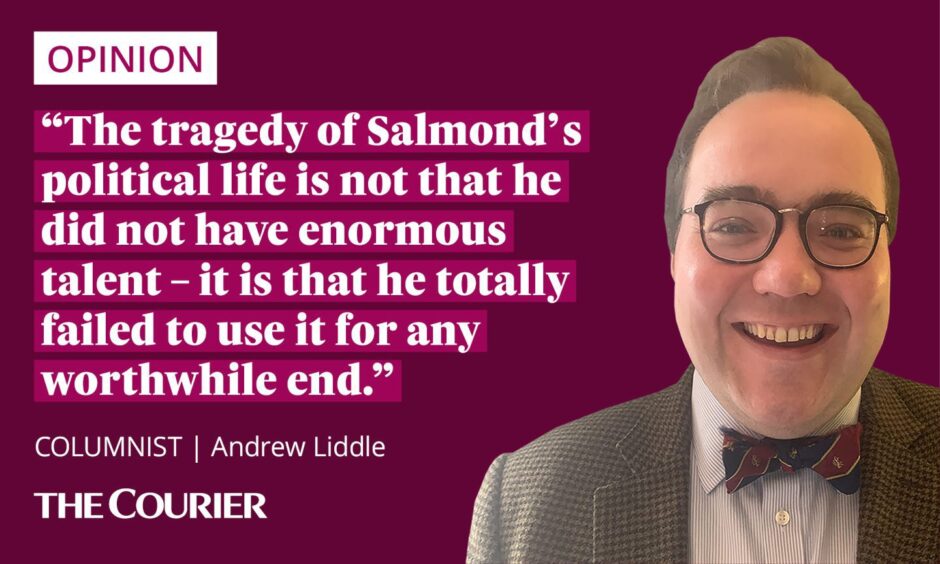
This, of course, did not quite happen, and Salmond’s clear defeat to Better Together’s Alister Darling in the first debate of the campaign was a rare, but crucial, slip up. But whether or not we accept the argument that Yes would never have got to a 45% share of the vote without Salmond is moot – there never would have been a contest at all without him.
Salmond’s afterlife was, of course, more dubious, more controversial and, ultimately, rather undignified. But even from the fringes his shadow loomed large over Scottish politics, and it is not impossible to imagine a scenario where – following a bad defeat for the SNP at the 2026 devolved elections – Salmond once again became the figurehead around which the nationalist movement rallied.
The tragedy of Salmond’s political life is not that he did not have enormous talent or that he did not attain significant power – it is that he totally failed to use these abundant gifts for any worthwhile end.
‘Alex Salmond could have led radical reform in Scotland’
As the most charismatic politician of the devolution era – and one of its most skilled orators – he could have made a case for radical reform in Scotland.
As the SNP’s undisputed leader, he could have built a culture that fostered respect and championed decency.
As First Minister with an unprecedented majority behind him, he could have addressed the massive inequalities that exist in Scottish society, or tackled the attainment gap between the richest and poorest pupils, or ended the scourge of drugs deaths.
Instead, Salmond used his unprecedented talents and unprecedented power to focus on independence – to sow discord, where he could have brought harmony. And all of these issues – and many more – got worse under his watch.
Certainly, delivering the 2014 independence referendum – and very nearly the break-up of the UK – acts as a useful fig leaf for the fact that, despite his clear abilities, Salmond actually has little legislatively to show for his many years of public service.
In fact, Salmond’s lasting legacy is just that: division.
A man who will be remembered not just for pitting nationalists against unionists, but friends and against friends, and families against families.
At the final reckoning, that is his central achievement. And for a man of Salmond’s unparalleled talents, that is a tragedy.
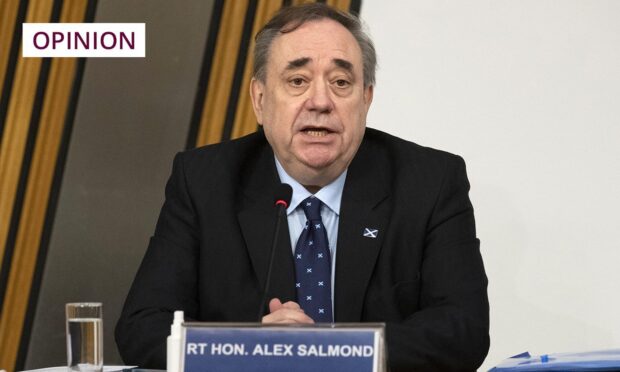
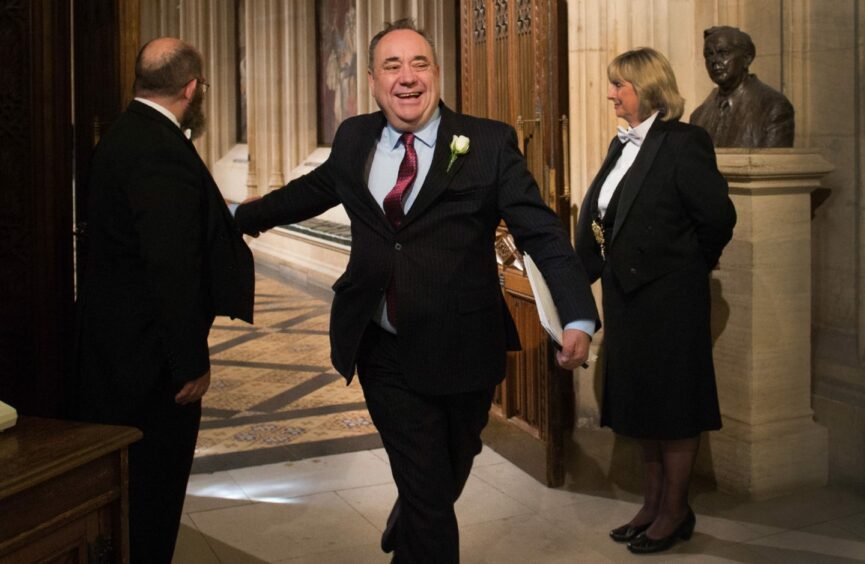
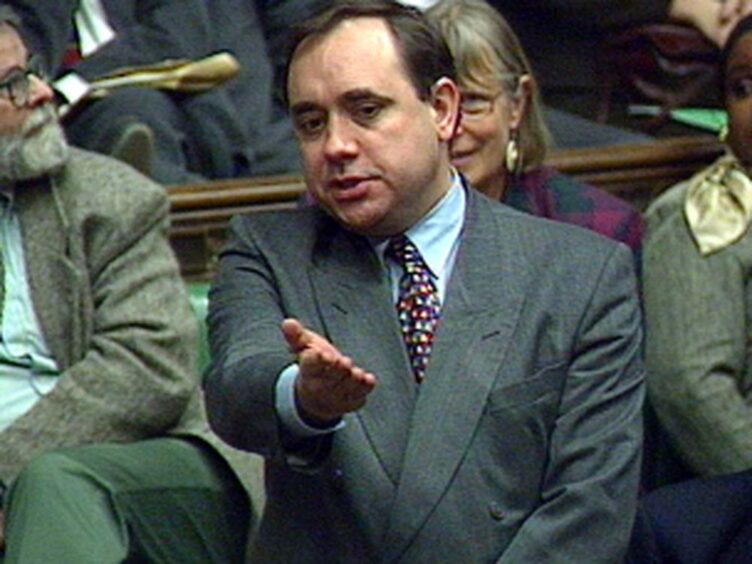







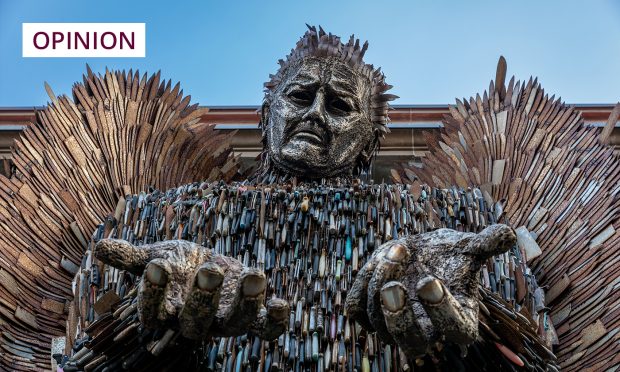
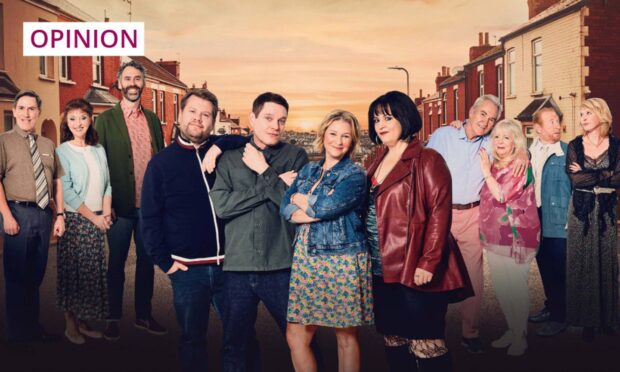
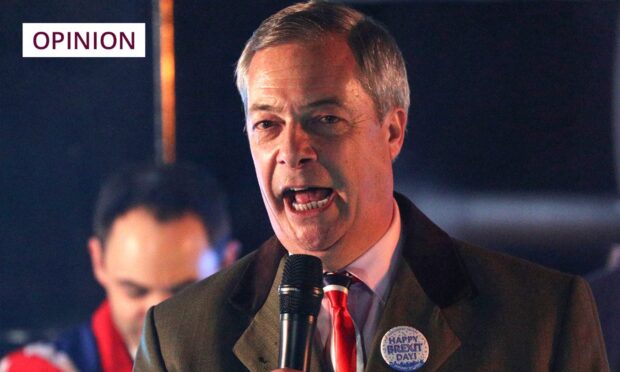
Conversation